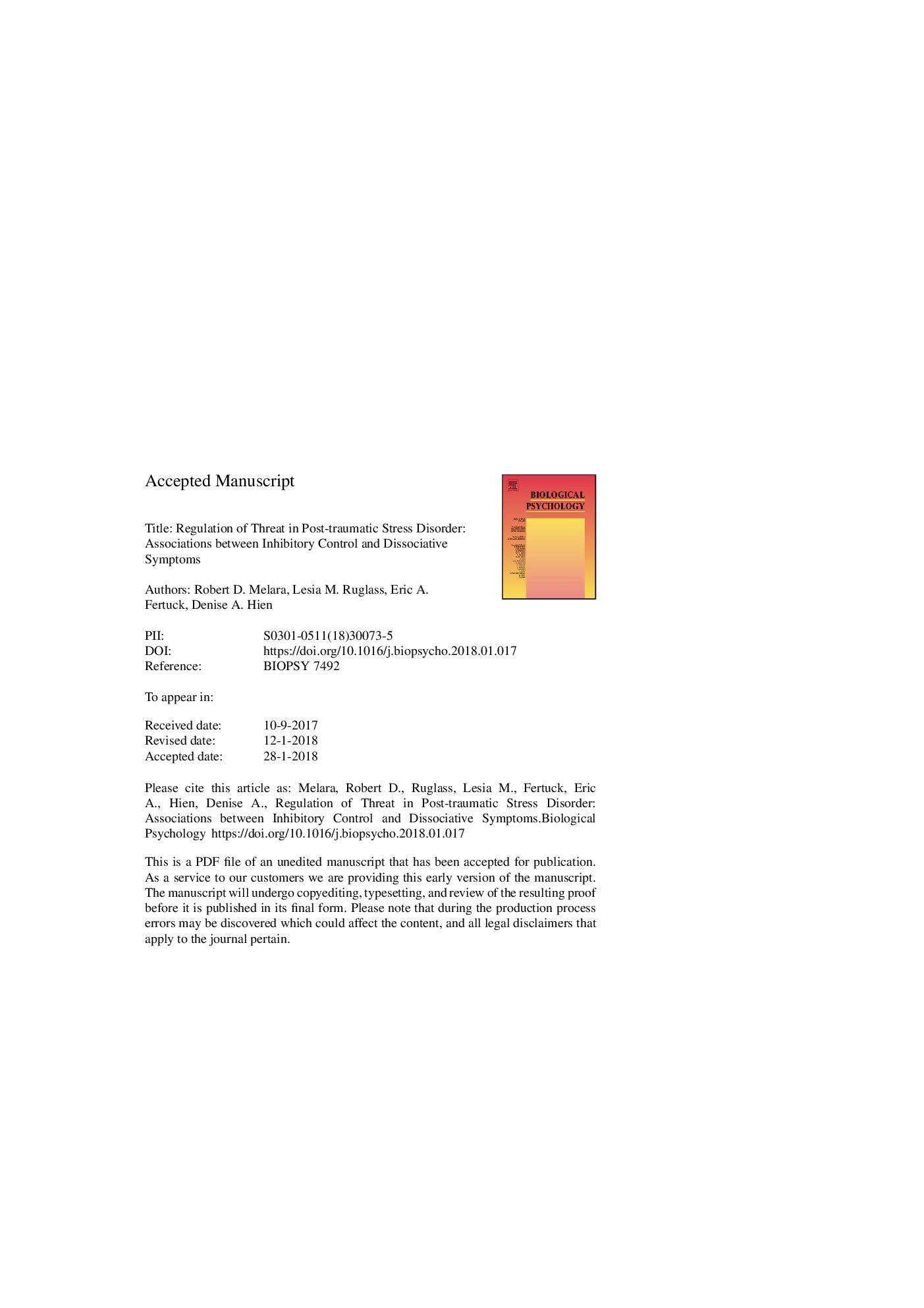| کد مقاله | کد نشریه | سال انتشار | مقاله انگلیسی | نسخه تمام متن |
|---|---|---|---|---|
| 7278186 | 1473841 | 2018 | 27 صفحه PDF | دانلود رایگان |
عنوان انگلیسی مقاله ISI
Regulation of threat in post-traumatic stress disorder: Associations between inhibitory control and dissociative symptoms
ترجمه فارسی عنوان
مقررات تهدید در اختلال استرس پس از سانحه: ارتباط بین کنترل مهار کننده و نشانه های تشخیصی
دانلود مقاله + سفارش ترجمه
دانلود مقاله ISI انگلیسی
رایگان برای ایرانیان
کلمات کلیدی
موضوعات مرتبط
علوم زیستی و بیوفناوری
علم عصب شناسی
علوم اعصاب رفتاری
چکیده انگلیسی
The current study investigated links between trauma exposure, Post-traumatic Stress Disorder (PTSD) symptoms, and inhibitory control assessed using a modified version of the visual flanker task. The study had three aims: (1) specifically confirm general non-affective deficits in sustained attention in PTSD; (2) probe the influence of threatening and trauma-related stimuli on inhibitory control; and (3) explore neural correlates connecting PTSD, facets of dissociation, and inhibitory control. Participants with PTSD (nâ¯=â¯16), trauma-exposed individuals without PTSD (TE; nâ¯=â¯14), and healthy controls (nâ¯=â¯15) discriminated line orientations while ignoring temporally flanking lines and images depicting threatening or non-threatening scenes or faces. Electrophysiological recordings were made during task performance. Relative to TE participants, PTSD participants had poor sustained non-affective attention, but nevertheless exhibited greater inhibition of distractors (i.e., high event-related potential [ERP] Rejection Positivity [RP]) to threatening (versus non-threatening) stimuli. RP was associated with greater self-reported depersonalization in PTSD participants, but with less depersonalization in TE participants. Dipole source analysis localized RP to the posterior cingulate cortex in both PTSD and TE (and healthy controls), but with an additional source in the ventromedial prefrontal cortex in TE, components of the default mode network. Results suggest a paradox in the executive control of distraction in PTSD: Whereas individuals with PTSD experience a general impairment in non-affective inhibitory control, their enhanced control of threat is associated with more severe symptoms of dissociation.
ناشر
Database: Elsevier - ScienceDirect (ساینس دایرکت)
Journal: Biological Psychology - Volume 133, March 2018, Pages 89-98
Journal: Biological Psychology - Volume 133, March 2018, Pages 89-98
نویسندگان
Robert D. Melara, Lesia M. Ruglass, Eric A. Fertuck, Denise A. Hien,
